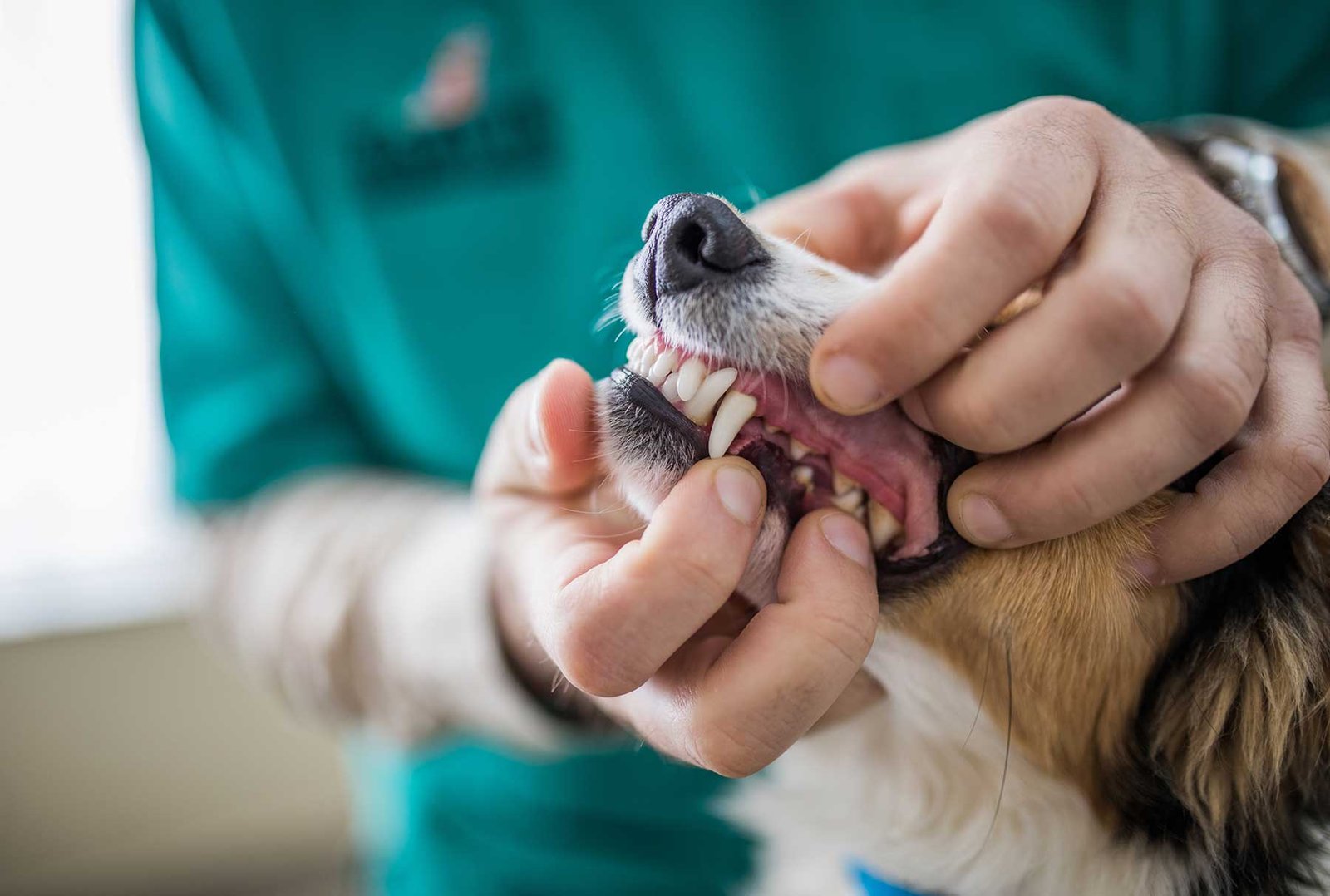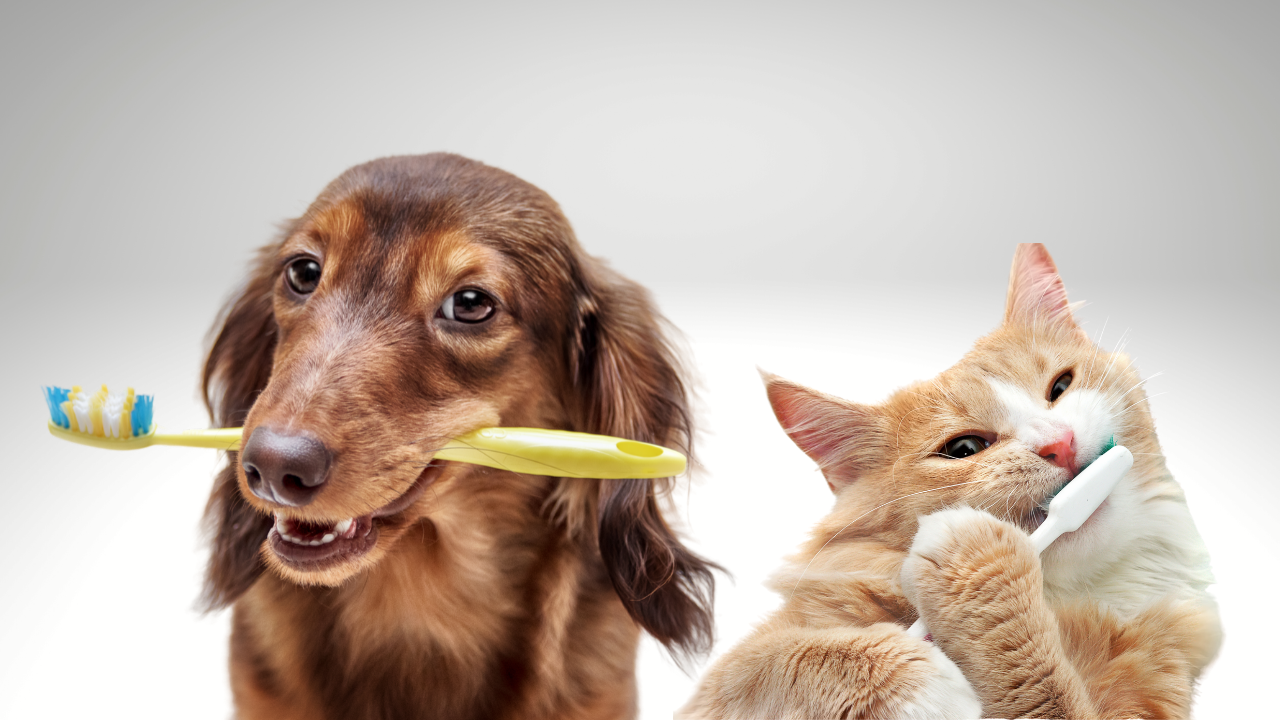Dental care is touted by using vets as one of the maximum essential pillars of doggie healthcare. Our canine partners can’t brush or floss independently, so it’s as much as canine parents to take up the challenge. But how essential is it in your pup’s well-being? Study directly to examine the significance of dental care for dogs, what it entails, and if your pup desires it. You must brush your puppy’s teeth three times a week, using a specifically made canine toothpaste. You’ll also want to clean your pup’s mouth with an oral cleansing agent that should be applied weekly. Mouth care is just one part of life for most canines, compared to the average human adult.
One study found that the average dog has only 10% as many teeth as humans have and spends half as much time eating or drinking. This means it’s up to you and your vet to ensure your pup’s teeth stay healthy and clean, so you need to brush them regularly and use an oral cleansing agent like Listerine. How to Brush Your Pup’s TeethBrushing your dog’s teeth is a good habit for both of you, and it should be done about 3-4 times daily. A toothbrush for dogs is similar to a human toothbrush but has a rounded handle and thick bristles than most human brushes. Cleaning your pup’s mouth will not only freshen his breath but also help control plaque buildup, which can lead to gingivitis and periodontal disease in dogs.

What Is Dental Care for Dogs?
Dental care for puppies isn’t just a once-a-yr appointment at the vet. Comprehensive dental care includes ordinary cleanings as well as everyday brushing at domestic. Human toothpaste should never be used, as it may contain toxic elements for dogs. Instead, use puppy-secure toothpaste and a brush or dental wipes to hold those chompers sparkly easily! Dental cleanings at the vet are more involved and may require anesthesia if a deep cleaning is needed. While a canine is underneath, plaque may be eliminated, and their tooth may be inspected to check for cavities or other primary dental problems.
A dental exam may also be carried out to detect conditions related to gum disease. Routine care for gums includes brushing teeth and cleaning the teeth with a dental paste that mixes baking soda, hydrogen peroxide, and water. Remember that your canine won’t need to endure the same dental care as you do. Dental check-ups should be performed at least twice yearly, with supplementary exams triggered if required by way of tartar buildup or any other problem. It is vital to go to the vet regularly and ensure your canine has clean teeth as soon as possible to avoid any serious issues.
So, why is dental taking care of puppies so critical? Preventive maintenance is available to avoid extra critical and more painful dental problems such as tooth decay or periodontal ailment. Severe dental may even lead to kidney failure, as kidney functioning can be eroded if bacteria enter the digestive machine frequently. Puppies are also more likely to get oral or intestinal parasites than adult animals. There is no vaccine to protect a puppy from these parasites, so they need to be checked by your veterinarian regularly for signs of parasites and treated accordingly.
The quoted prices might be higher because puppies are more high-maintenance than adult dogs. That is why it is helpful if you know what to expect from the total cost of a routine check-up for a puppy in your area. The costs for a first-time check-up for a small dog can range from $80 to $400. This includes getting your wellness exam, an oral exam, and X-rays of your pet’s mouth and teeth. The costs for the next visit are typically around $100 to $200 in person. These visits may include follow-up care after dental work is completed or if further treatment is needed. How Much Does a Dog Cost? The cost of a dog depends on the type of dog you have and where you live. For example, the average price of having a new puppy is $250 to $500. This includes finding and purchasing a puppy and all other yearly expenses, like vaccinations, food, etc.
Are Dental Cleanings Necessary for Dogs?
Yes! Preventive care guarantees that your fur infant’s enamel and gums are tip-top. Brushing at home is exceptionally crucial. However, dental cleanings are also essential for your pup’s long-term fitness. Consider how grimy human teeth can get even though we brush and floss them twice daily. We don’t touch our dogs’ teeth nearly as much (and neglect flossing), so a professional cleansing is vital to clean out plaque that poses a chance to your doggo’s nicely-being. I don’t brush my dog’s teeth. Therefore, I think he has a healthy mouth. While it’s true that your puppy does not need brushing, it doesn’t imply that you do not have to take care of his dental health.
Plaque builds up on your pup’s teeth, creating an unsafe situation for their enamel and gums if it isn’t cleaned away regularly. The problem is usually that the plaque doesn’t simply vanish by itself: the buildup can get so thick and turn into tartar, which needs a professional cleansing to be taken care of. Brushing your dog’s teeth is still important, as this will remove debris that can irritate their gums, but you need a professional to do the job when tartar starts building up.
How Often Should Dogs Get Their Teeth Cleaned?
A part of the cause that every day take a look at-u.s.a.are so crucial is that vets check your fur toddler’s tooth and gums to permit you to recognize if cleaning is so. If not, vets can dispense valuable tips about the dental care that your dog wishes and supply an estimated timeline for when the subsequent cleansing needs to be accomplished. However, in answer to this query, you can not answer it as your canine is different than the kitties that you feed regularly. Quit feeding your furry friend high-cholesterol food, like cheeseburgers and bacon. Unequivocally, this is not a hypothesis to beat around the bush with. The simple truth is that all animals, regardless of their species, require low-cholesterol food. While this may be difficult for your pets as they are already so used to high-cholesterol food, it’s not impossible.
You need to try to find a new kind of meat for your pet that has less cholesterol, less saturated fat, and higher protein. This can be done by visiting your local animal shelter or pet store and asking what kind of meat they recommend for your specific breed of pet. Another option is to buy whole-body cuts of beef rather than getting your pet those fried or grilled cuts. Whole-body cuts are ones like the ribeye steak and the grind, which contain a lot of good muscle groups that make for a complete meal for your pet.
Is your pup convalescing from cleaning or an extraction? A pet potty like DoggieLawn can make going to the restroom infinitely easier while your hairy one still shakes off that anesthesia. Enroll in a natural grass pee pad these days to prepare for an upcoming procedure and ensure your doggy has everything they want for an easy restoration! If you’re going to be gone for more than a few hours, you need to be sure your canine companion will have the ability to enjoy themselves.

This is where an automatic pet feeder comes in handy. These systems will dispense treats on a period basis, and your dog’s undertaking won’t need to be taken over by visiting friends or family members helpful for the duration of this transitional time! To clean your companion’s teeth, give them high-fiber treats like Fromm Four-Star Nutritionals Canned Dog Food. These foods will help remove plaque and tartar buildup that could lead to gum disease.
Additionally, they’ll discuss a lot of dietary fiber, which can be very helpful in maintaining a healthy weight. These foods are fortified with vitamins and minerals to maintain health and wellness! For under $10, you can buy one of the many pet insurance policies available today. This is crucial for those with an older child or family members who may not be able to care for an animal. If your dog can’t be taken care of by someone else, it’ll be covered and likely have a better chance of living longer. This gives your family peace of mind that they’re still caring for their pet.



